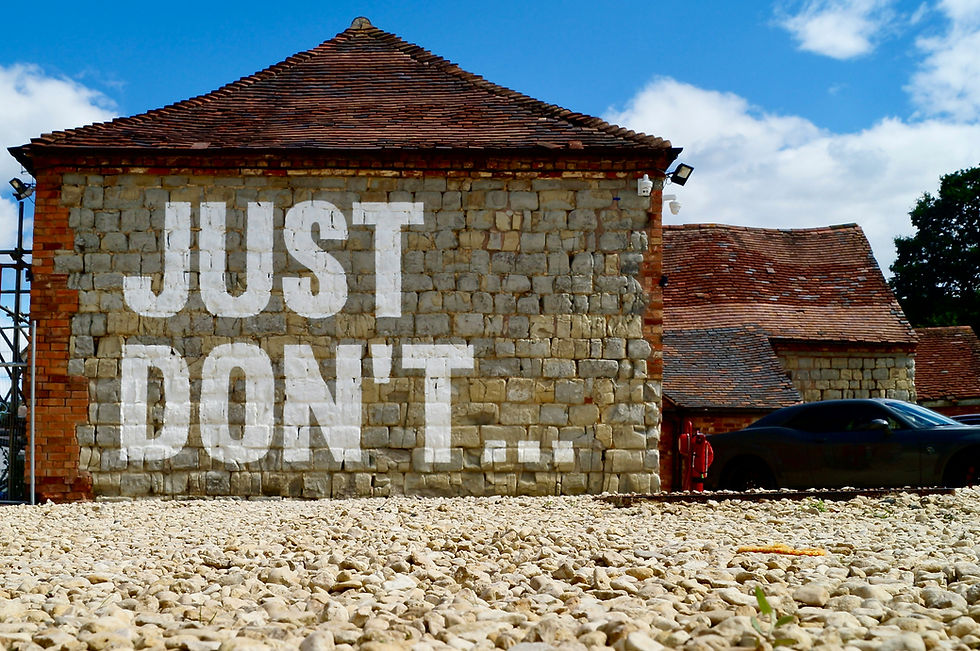"Your Kids Think They're White."
- Jessica Kiragu
- Aug 15, 2025
- 3 min read
Updated: Aug 19, 2025
The words cut through the air — clear, certain. A black person was speaking, their gaze fixed on my mixed-race children, then shifting to me. I am white.

For a second, it threw me. I wasn’t defensive or offended—really just curious. What did they hear my kids say or see them do that made them say it? Was it something about me that made them want to share this? Or maybe something in their own story made the words feel necessary?
I didn’t say this at the time, but here’s the thing—my kids don’t think they’re white. They are white.
They’re also black. They’re from Kenya and from the U.S. They’re all of this and more, all at once.
They come from their black, Kenyan dad and me, their white American mom. In them, I see the threads of our people, the rhythms of the places that shaped us, the stories we’ve both carried forward.
In our family, we do our best to hold all of it—the parts we understand and the parts we’re still learning about. Not because they’re easy to fit, but because they all matter. I think our wholeness lives somewhere in that holding, in making room for every story and every truth that belongs to us.
But I know that’s not how the world works.
Here in the U.S., whiteness has its own boundaries — shaped over time by laws, by culture, by unspoken rules. My kids don’t quite fit the picture those boundaries create, and people sometimes feel the need to point that out. Sometimes it’s direct. Other times it comes in small remarks about their features, or surprise that I — a white woman with curly hair — know how to care for theirs. However it’s delivered, it carries a subtle message: this is who we think you are, and this is who we think you’re not.
For black people — including my own kids, who are seen as black here in the U.S. — those boundaries aren’t just uncomfortable, they’re dangerous. They decide who belongs and who doesn’t, who is given the benefit of the doubt and who is treated with suspicion, exclusion, or even violence.
My hope is that my kids know they don’t have to accept that as the only story. The truth is, none of us do. We all deserve room to imagine ourselves, one another, and the world beyond the narrow limits whiteness tries to set.
I know something about what it feels like to try to fit into the version of “acceptable” and “good” that whiteness offers. As a white person in the U.S., I grew up in a world where whiteness itself wasn’t named or questioned—it was treated as the default. I learned to go along with that, to keep certain truths unspoken, to separate my feelings from my thinking, to bend what I knew so the story of whiteness could stay comfortable and untouched.
I don’t want to keep doing that anymore.
When I push back on the idea that my kids “think they’re white,” it’s not about defending whiteness—it’s about wanting something different. I want my kids to have the space to see themselves as whole people, not as fragments of someone else’s definition.
From what I’ve seen, the world is always ready to tell us who we are. There are systems and structures that seem to decide whose identities get celebrated, whose get tolerated, and whose get pushed to the edges. Whiteness—at least how I’ve come to understand it—has survived by drawing lines between people, by making an image of who counts as white and placing others firmly outside of it.
I don’t think that way of seeing helps any of us. It can keep us from noticing each other’s fullness and complexity. It can leave us relating to each other and ourselves in pieces instead of as whole human beings. And living in pieces…well, it can cost us a lot.
No one has ever told me, “Your kids think they’re black.” I doubt anyone has said it to their dad either. That’s not how whiteness tends to work—it sets itself up as the standard and then decides who belongs.
So I try to talk with my kids about it. I point it out when I see it. I share the ways I’ve noticed how some white folks can say things like “we don’t see color” or “race doesn’t matter,” but then live in ways that show race does matter—especially when it comes to keeping whiteness at the center.
I want my kids to be able to notice those contradictions for themselves. To know they can choose not to take them in as truth. To live in the wholeness of all that they are, not just the parts the world is comfortable with.
Because I really do believe that the more space we make for each other’s full selves, the closer we get to something like wholeness—and maybe even liberation—for all of us.




Comments